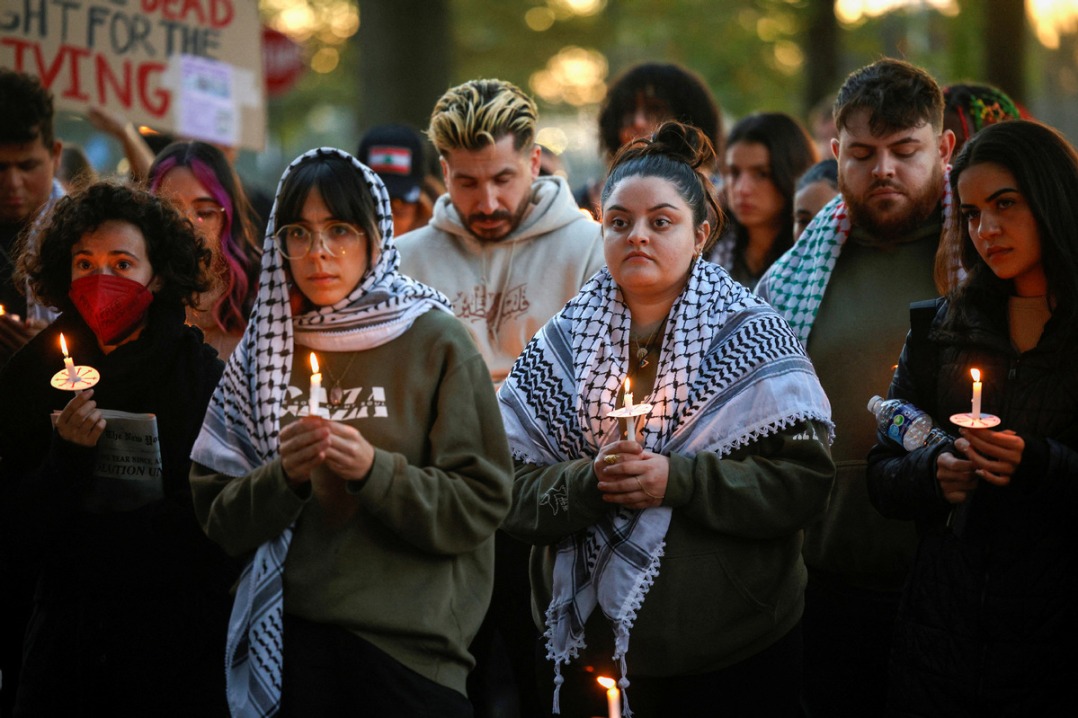Iran warns Israel against attacks
Tensions in Middle East escalate amid pleas by experts for diplomatic solution


The regional tensions triggered a year ago by the Palestinian armed group Hamas' attack on southern Israel have spiraled into a series of Israeli operations by land and air over Lebanon and direct attacks by Iran onto Israeli military installations.
Hezbollah deputy chief Naim Qassem said on Tuesday the group supported Lebanese efforts for a cease-fire with Israel, after two weeks of Israeli strikes that killed its leader.
"We support the political efforts that (Lebanese Parliament Speaker) Nabih Berri is undertaking toward a cease-fire," Qassem said in a televised speech.
Israel kept up the pressure on Hezbollah on Tuesday by launching new operations in southern Lebanon.
The latest escalation followed Prime Minister Benjamin Netanyahu's vow to fight a "sacred war "until Hezbollah and Hamas are defeated.
Hamas' Oct 7 attacks sparked Gaza's deadliest-ever conflict, which, according to the Health Ministry in the Hamas-run territory, has killed nearly 42,000 people, most of whom are civilians.
Gaza's civil defense agency said on Tuesday an Israeli strike killed at least 17 people at a refugee camp in the center of the territory, as Israel's military targets Hamas positions.
On Monday, UN experts issued a statement reiterating their call for all parties to end hostilities and demanding accountability after a year of human loss and suffering, as well as a blatant disregard for international law.
"We continue to urge the international community to ensure an end to transfers of arms by states and companies to Israel, including through proxies, to avoid responsibility in war crimes and crimes against humanity by complicity," the statement said.
The experts said they were alarmed by the "expansion of the violence and hostilities in other countries in the region", in particular the escalation in Lebanon, which has killed more than 2,000 people, including women and children, injured more than 9,500, and displaced hundreds of thousands more.
"This spillover of hostilities blatantly undermines international law and the UN Charter and endangers peace and stability of a region that has suffered decades of conflicts," the statement said.
Speaking on Monday at the end of a four-day tour of the Middle East, French Foreign Minister Jean-Noel Barrot said Israel's security cannot be guaranteed with military force alone and will require a diplomatic solution.
"Military success cannot be a substitute for a political perspective," Barrot told a news conference in Jerusalem.
He said it was odd to call for a cease-fire while giving offensive weapons, echoing French President Emmanuel Macron's call for a halt to arms deliveries to Israel.
Agencies contributed to this story.
































